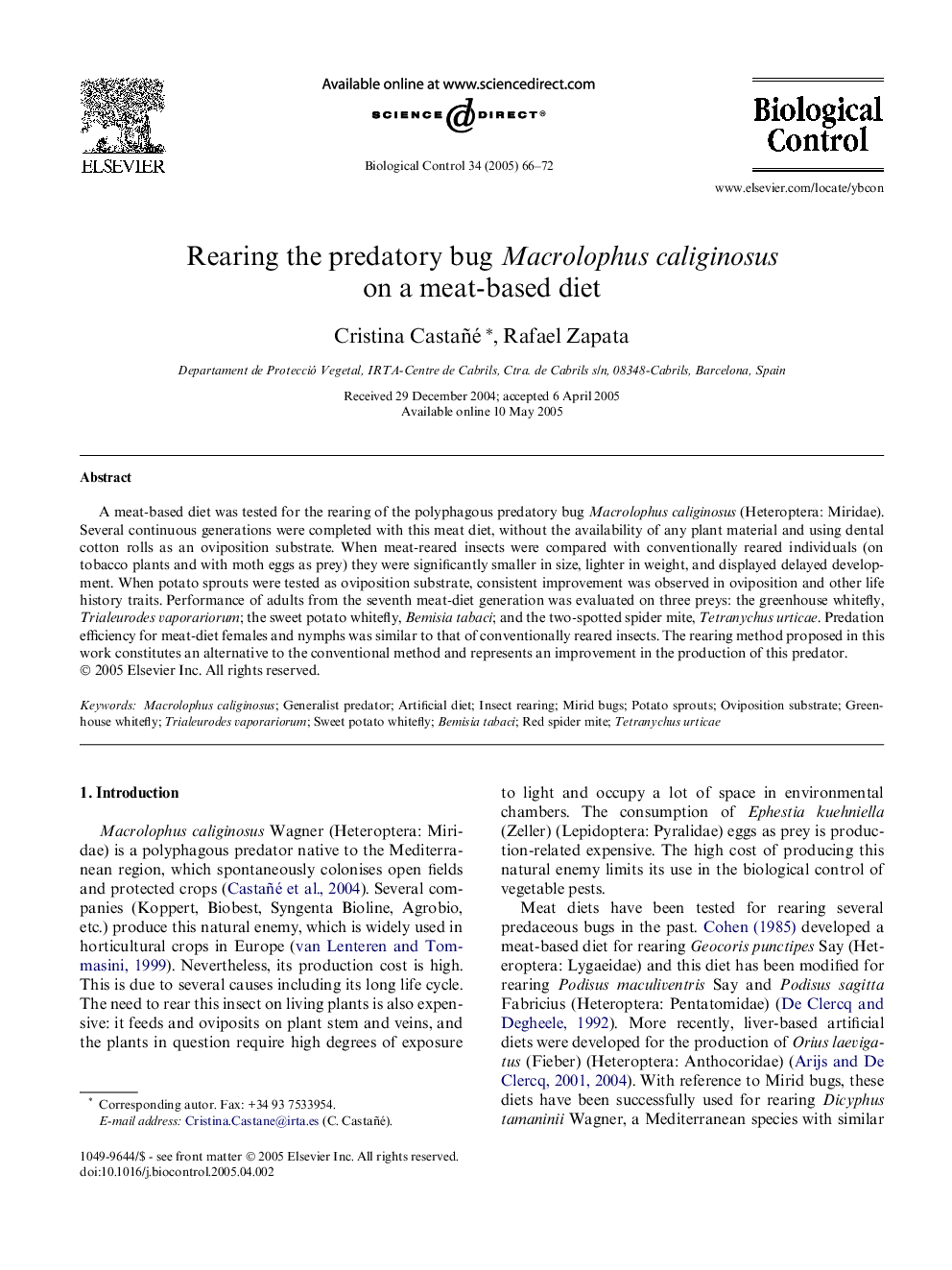| Article ID | Journal | Published Year | Pages | File Type |
|---|---|---|---|---|
| 9471930 | Biological Control | 2005 | 7 Pages |
Abstract
A meat-based diet was tested for the rearing of the polyphagous predatory bug Macrolophus caliginosus (Heteroptera: Miridae). Several continuous generations were completed with this meat diet, without the availability of any plant material and using dental cotton rolls as an oviposition substrate. When meat-reared insects were compared with conventionally reared individuals (on tobacco plants and with moth eggs as prey) they were significantly smaller in size, lighter in weight, and displayed delayed development. When potato sprouts were tested as oviposition substrate, consistent improvement was observed in oviposition and other life history traits. Performance of adults from the seventh meat-diet generation was evaluated on three preys: the greenhouse whitefly, Trialeurodes vaporariorum; the sweet potato whitefly, Bemisia tabaci; and the two-spotted spider mite, Tetranychus urticae. Predation efficiency for meat-diet females and nymphs was similar to that of conventionally reared insects. The rearing method proposed in this work constitutes an alternative to the conventional method and represents an improvement in the production of this predator.
Keywords
Related Topics
Life Sciences
Agricultural and Biological Sciences
Agronomy and Crop Science
Authors
Cristina Castañé, Rafael Zapata,
